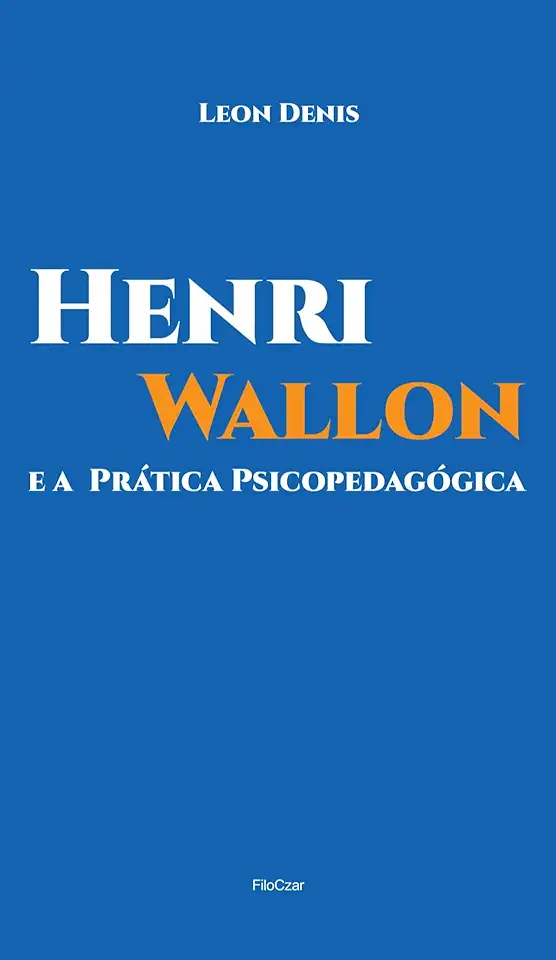
Henri Wallon and Psychopedagogical Practice - Denis, Léon
Henri Wallon and Psychopedagogical Practice: A Comprehensive Guide to Understanding Child Development and Education
Introduction
Henri Wallon, a renowned French psychologist and philosopher, made significant contributions to the field of child development and education. His groundbreaking work has had a profound impact on our understanding of how children learn and develop, and his theories continue to inform contemporary psychopedagogical practices. This comprehensive guide delves into Wallon's life, theories, and their practical applications in educational settings, providing educators and parents with valuable insights into fostering children's holistic development.
Wallon's Life and Work
Henri Wallon was born on June 15, 1879, in Paris, France. He studied philosophy and medicine at the Sorbonne, where he later became a professor of psychology. Throughout his career, Wallon conducted extensive research on child development, drawing inspiration from various disciplines, including psychology, philosophy, biology, and sociology. His interdisciplinary approach allowed him to develop a comprehensive understanding of the complex factors that influence children's development.
Wallon's Theory of Child Development
Wallon's theory of child development is based on the principle of functional unity, which emphasizes the interconnectedness of the biological, psychological, and social aspects of development. He argued that children's development occurs through a series of stages, each characterized by distinct psychological and behavioral characteristics. These stages include:
The impulsive stage (birth to 1 year): During this stage, infants are primarily driven by their reflexes and immediate needs. They gradually develop a sense of self and begin to interact with their environment.
The sensory-motor stage (1 to 3 years): This stage is marked by rapid cognitive and motor development. Children begin to explore their surroundings, use language, and develop a sense of autonomy.
The projective stage (3 to 6 years): During this stage, children's imaginations flourish, and they begin to develop a sense of self-awareness and social identity. They engage in pretend play, ask questions, and show an eagerness to learn.
The categorial stage (6 to 11 years): This stage is characterized by the development of logical thinking and reasoning skills. Children become more aware of social norms and expectations and begin to develop a sense of morality.
The adolescence stage (11 to 18 years): This stage is marked by significant physical, emotional, and cognitive changes. Adolescents develop a sense of identity, explore their independence, and grapple with complex social and emotional issues.
Psychopedagogical Applications of Wallon's Theory
Wallon's theory has had a profound impact on educational practices, providing a framework for understanding how children learn and develop. Educators can apply Wallon's principles to create learning environments that cater to children's developmental needs and foster their holistic growth. Some practical applications of Wallon's theory include:
Creating developmentally appropriate learning experiences: By understanding the characteristics of each developmental stage, educators can design activities and lessons that match children's abilities and interests.
Encouraging active learning: Wallon emphasized the importance of children's active engagement in their learning process. Educators can promote active learning by providing hands-on experiences, encouraging exploration, and fostering collaboration.
Supporting social and emotional development: Wallon recognized the significance of social interactions in children's development. Educators can create supportive environments that encourage positive peer relationships and provide opportunities for children to express their emotions and develop social skills.
Promoting holistic development: Wallon's theory emphasizes the interconnectedness of all aspects of development. Educators can foster holistic development by addressing children's physical, cognitive, emotional, and social needs.
Conclusion
Henri Wallon's work has left an indelible mark on the field of child development and education. His theory provides a comprehensive framework for understanding how children learn and develop, and its practical applications have revolutionized educational practices. By embracing Wallon's principles, educators can create learning environments that nurture children's holistic development and empower them to reach their full potential.
Call to Action
If you are an educator, parent, or anyone interested in child development, this book is a must-read. Gain a deeper understanding of how children learn and develop, and discover practical strategies to support their holistic growth. Order your copy of "Henri Wallon and Psychopedagogical Practice" today and embark on a journey of transformative learning and teaching.